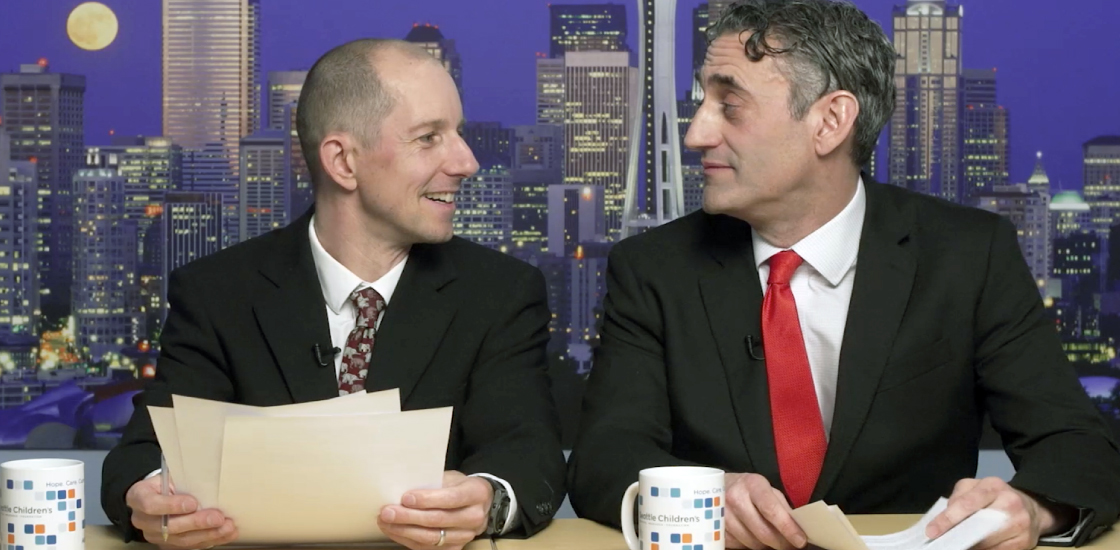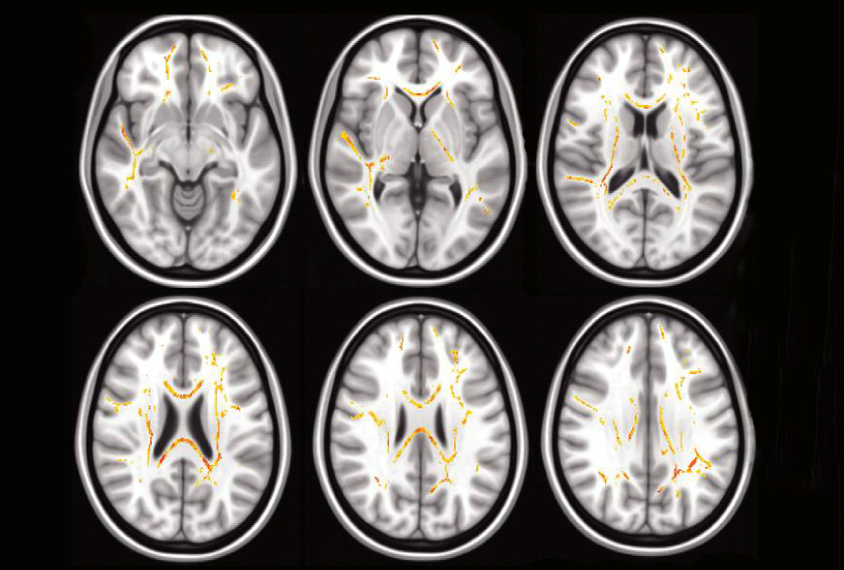Where autism and attention deficit meet
Recent articles
Featured articles
Decoding the overlap between autism and ADHD
Autism and attention deficit hyperactivity disorder often coincide, but the search for common biological roots has turned up conflicting evidence.
Decoding the overlap between autism and ADHD
Autism and attention deficit hyperactivity disorder often coincide, but the search for common biological roots has turned up conflicting evidence.
‘Baby sibs’ who evade autism remain at risk for attention deficit
Sally Ozonoff is looking for early signs of attention deficit hyperactivity disorder in videos of hundreds of younger siblings of children with autism.

‘Baby sibs’ who evade autism remain at risk for attention deficit
Sally Ozonoff is looking for early signs of attention deficit hyperactivity disorder in videos of hundreds of younger siblings of children with autism.
Inside Scoop From the Autism Anchors: The attention deficit-autism overlap
Raphael Bernier and James Mancini describe the similarities and differences between autism and attention deficit hyperactivity disorder.

Inside Scoop From the Autism Anchors: The attention deficit-autism overlap
Raphael Bernier and James Mancini describe the similarities and differences between autism and attention deficit hyperactivity disorder.
From the archives
Problems with attention, not autism, predispose children to injury
Young children with autism sustain injuries primarily because of co-occurring attention deficit.

Problems with attention, not autism, predispose children to injury
Young children with autism sustain injuries primarily because of co-occurring attention deficit.
Risk genes for autism overlap with those for attention deficit
People with attention deficit hyperactivity disorder may carry certain rare, harmful mutations in many of the same genes as people with autism.

Risk genes for autism overlap with those for attention deficit
People with attention deficit hyperactivity disorder may carry certain rare, harmful mutations in many of the same genes as people with autism.
Shared genetic pathways underlie autism, attention deficit
A trio of studies make the strongest case to date for shared genetic roots between autism and attention deficit hyperactivity disorder.

Shared genetic pathways underlie autism, attention deficit
A trio of studies make the strongest case to date for shared genetic roots between autism and attention deficit hyperactivity disorder.
Medication, parent coaching quell hyperactivity in autism
A drug called atomoxetine eases hyperactivity in children who have both autism and attention deficit hyperactivity disorder.
Medication, parent coaching quell hyperactivity in autism
A drug called atomoxetine eases hyperactivity in children who have both autism and attention deficit hyperactivity disorder.
Some children may truly outgrow autism
Children who officially lose their autism diagnosis show no residual signs of the condition.

Some children may truly outgrow autism
Children who officially lose their autism diagnosis show no residual signs of the condition.
Common brain signature marks autism, attention deficit
Children with autism, attention deficit hyperactivity disorder or obsessive-compulsive disorder all show similar disruptions in brain structure.

Common brain signature marks autism, attention deficit
Children with autism, attention deficit hyperactivity disorder or obsessive-compulsive disorder all show similar disruptions in brain structure.
Psychiatric problems common in siblings of people with autism
Mental health conditions crop up more than twice as often in families that include a child with autism as in the general population.

Psychiatric problems common in siblings of people with autism
Mental health conditions crop up more than twice as often in families that include a child with autism as in the general population.
Clinical acumen key in discerning autism, attention deficit
A widely used diagnostic test for autism can reliably distinguish the condition from attention deficit hyperactivity disorder, but not always.

Clinical acumen key in discerning autism, attention deficit
A widely used diagnostic test for autism can reliably distinguish the condition from attention deficit hyperactivity disorder, but not always.
Attention deficit may mask autism, delay diagnosis
Children who have both attention deficit hyperactivity disorder and autism receive their autism diagnosis an average of four years later than those who have autism alone.

Attention deficit may mask autism, delay diagnosis
Children who have both attention deficit hyperactivity disorder and autism receive their autism diagnosis an average of four years later than those who have autism alone.
Questions for Deborah Fein: Defining ‘optimal outcome’
Understanding why some children appear to outgrow their autism diagnosis may provide clues about the biology of the disorder but shouldn’t dictate treatment decisions, says Deborah Fein.

Questions for Deborah Fein: Defining ‘optimal outcome’
Understanding why some children appear to outgrow their autism diagnosis may provide clues about the biology of the disorder but shouldn’t dictate treatment decisions, says Deborah Fein.
Explore more from The Transmitter
Lack of reviewers threatens robustness of neuroscience literature
Simple math suggests that small groups of scientists can significantly bias peer review.

Lack of reviewers threatens robustness of neuroscience literature
Simple math suggests that small groups of scientists can significantly bias peer review.
Dendrites help neuroscientists see the forest for the trees
Dendritic arbors provide just the right scale to study how individual neurons reciprocally interact with their broader circuitry—and are our best bet to bridge cellular and systems neuroscience.

Dendrites help neuroscientists see the forest for the trees
Dendritic arbors provide just the right scale to study how individual neurons reciprocally interact with their broader circuitry—and are our best bet to bridge cellular and systems neuroscience.
Two primate centers drop ‘primate’ from their name
The Washington and Tulane National Biomedical Research Centers—formerly called National Primate Research Centers—say they made the change to better reflect the breadth of research performed at the centers.

Two primate centers drop ‘primate’ from their name
The Washington and Tulane National Biomedical Research Centers—formerly called National Primate Research Centers—say they made the change to better reflect the breadth of research performed at the centers.